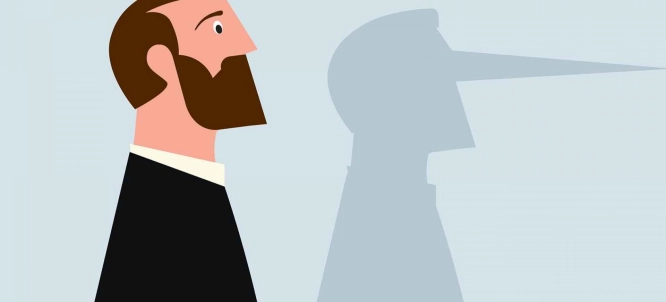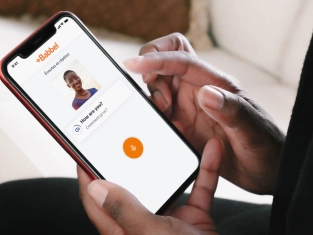by PushtoLearn
What is the Etymology of “Cap” and “No cap”?
Table of Contents
Cap Slang Meaning
Meaning: In modern slang, "cap" means a lie or falsehood. To say someone is "capping" means that they are lying or exaggerating.
Etymology:
The use of "cap" in this sense is believed to have originated in the southern United States, particularly in African American communities.
One theory is that it may derive from the word "capping," which in the 1940s was used to mean "to top" or "to surpass," often in the context of boasting or exaggeration. This evolved into meaning "to lie" or "to exaggerate" over time.
The term gained widespread popularity through its use in hip-hop music and social media in the late 2010s.
➡️ Example: "He said he could run a mile in five minutes, but I know he's capping." (He’s lying or exaggerating.)
No Cap Origin
Meaning: "No cap" means "no lie" or "I'm not lying." It's used to emphasize that what someone is saying is truthful or not exaggerated.
Etymology:
"No cap" directly stems from the slang use of "cap." By adding "no" in front of it, the phrase is used to assert that the statement being made is true and not a lie or exaggeration.
The phrase "no cap" became widely recognized and used in the mainstream, especially in music and social media, around the mid-2010s. It's often associated with hip-hop artists and their lyrics, where it was used to assert the truthfulness of their statements.
➡️ Example: "I just got a new job, no cap!" (I'm not lying; it's true.)
Popularization and Cultural Impact
Music and Social Media: The terms "cap" and "no cap" became mainstream largely due to their frequent use in hip-hop lyrics. Artists like Future, Young Thug, and Offset of Migos have used these terms in their songs, which helped spread their popularity.
TikTok and Other Platforms: Social media platforms like TikTok further amplified the use of these phrases, making them common among younger generations across different cultures.
Summary
Cap: Means "lie" or "falsehood," likely derived from earlier slang meaning to "top" or "boast."
No Cap: Means "no lie" or "truthfully," and is used to emphasize that a statement is genuine.
These terms are now part of the broader English vernacular, especially among younger people, and are examples of how language evolves and spreads through music and digital culture.

In-depth view
⭐ Historical Roots: The term "cap" can be traced back to the early 20th century, where it meant "to surpass" or "to top," often in the context of verbal jousting or boasting. This was linked to the practice of ritualized insults known as "capping," a tradition of outdoing others with exaggerated claims or insults.
⭐ High Capping: In the 1990s, the phrase "high capping" gained traction, particularly in Texas, as a way to describe someone who exaggerates or lies to make themselves look better. This concept was popularized by rappers such as E-40 and Pimp C, embedding the term within hip-hop culture.
⭐ Texas Influence: Texas is often cited as a significant influence on the development of "capping." The state's rap scene played a crucial role in shaping the term's meaning and usage, especially within the context of street culture and music.
⭐ The Phrase "No Cap": The phrase "no cap" emerged as a way to signify that a statement was truthful or sincere. Essentially, it means "I'm not lying" or "I'm being serious." This phrase gained popularity in the 2010s, particularly among younger generations and through social media platforms like TikTok and Twitter.
⭐ Alternative Theories: Various other explanations for "cap" and "no cap" have been suggested, ranging from the idea of "capping" as in placing a cap on something, thus hiding its true nature, to references to fake gold caps on teeth versus real ones. Another theory links the term to "cap guns," which are toy guns that don’t shoot real bullets, implying something fake or not genuine.
⭐ Cultural Impact: The terms have transcended their origins in AAVE and hip-hop culture to become widely recognized in mainstream society. They are now commonly used in casual conversations, social media, and even in marketing, often to appeal to younger audiences.
⭐ Linguistic Evolution: The evolution of these terms highlights the dynamic nature of language, especially within marginalized communities. Slang terms like "cap" and "no cap" often originate from specific cultural contexts and gradually permeate broader linguistic landscapes, reflecting the creativity and adaptability of language.
FAQ
What does "cap" mean in slang?
In slang, "cap" means a lie or falsehood. If someone is "capping," it means they are lying or exaggerating.
What does "no cap" mean?
"No cap" means "no lie" or "I'm telling the truth." It’s used to emphasize that a statement is honest and not exaggerated.
Where did "cap" and "no cap" come from?
These terms originated in African American Vernacular English (AAVE) and are believed to have Southern U.S. roots. They became widely popular through hip-hop music and social media in the late 2010s.
Can "cap" be used in formal writing?
Answer: "Cap" and "no cap" are informal slang terms and are generally not appropriate for formal writing. They are best used in casual conversations, social media, or when discussing pop culture.
How do you use "cap" in a sentence?
Example: "He said he has a million dollars, but that's cap." This means that the claim of having a million dollars is a lie or exaggeration.
How do you use "no cap" in a sentence?
Example: "I really did finish all my homework last night, no cap." This means the speaker is telling the truth about finishing their homework.
Are there similar slang terms to "cap" and "no cap"?
Yes, similar slang terms include "facts" (meaning something true) and "deadass" (meaning seriously or genuinely). These are often used in similar contexts to assert truthfulness.
Is "cap" used in any other contexts?
While "cap" is commonly used as slang for a lie, it can also refer to a physical cap or hat, or in other contexts like "capitalization" (e.g., market cap). However, these are unrelated to the slang meaning.
Who popularized the use of "cap" and "no cap"?
The terms were popularized by hip-hop artists like Future, Young Thug, and Migos, and their use spread widely through social media and music.
Can "no cap" be used sarcastically?
Yes, like many slang terms, "no cap" can be used sarcastically to imply that something is obviously false, depending on the tone and context. For example, "Yeah, I totally finished that 100-page report in one hour, no cap."

